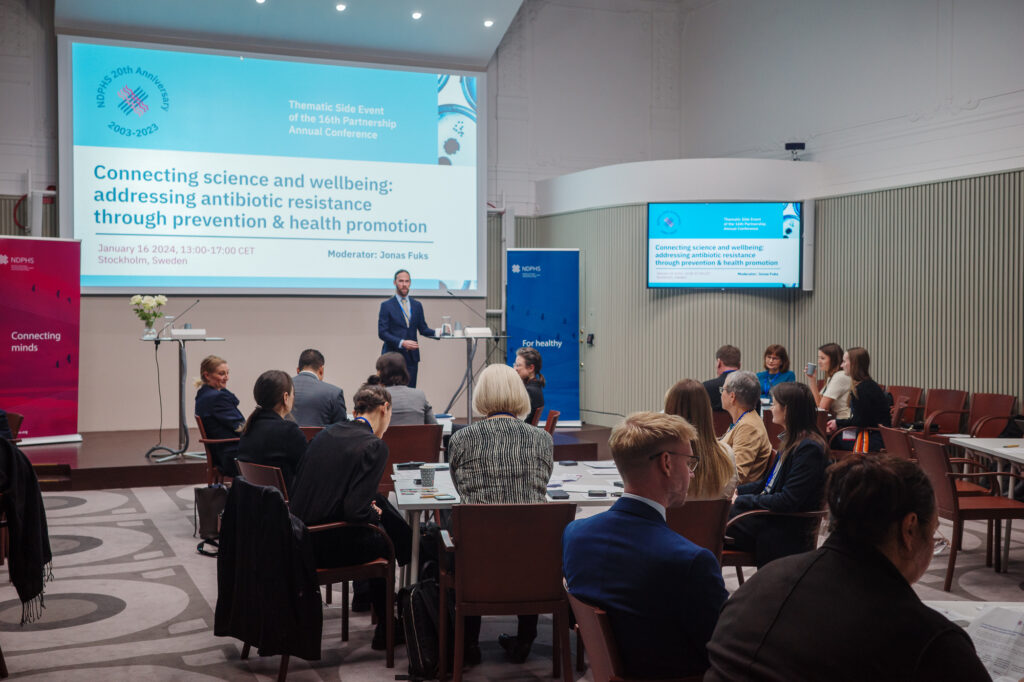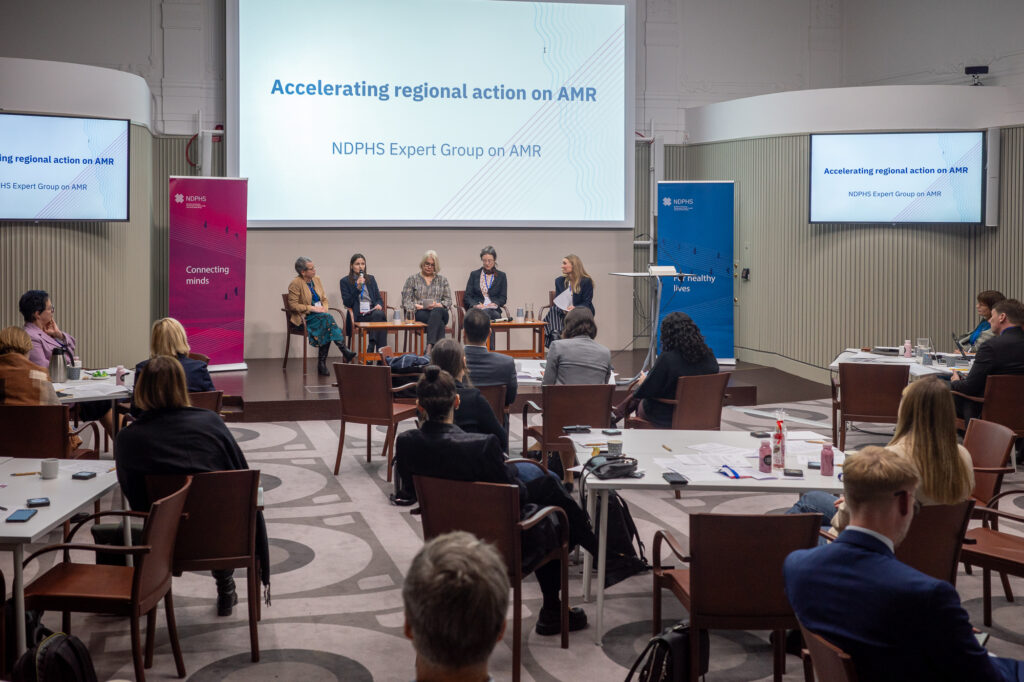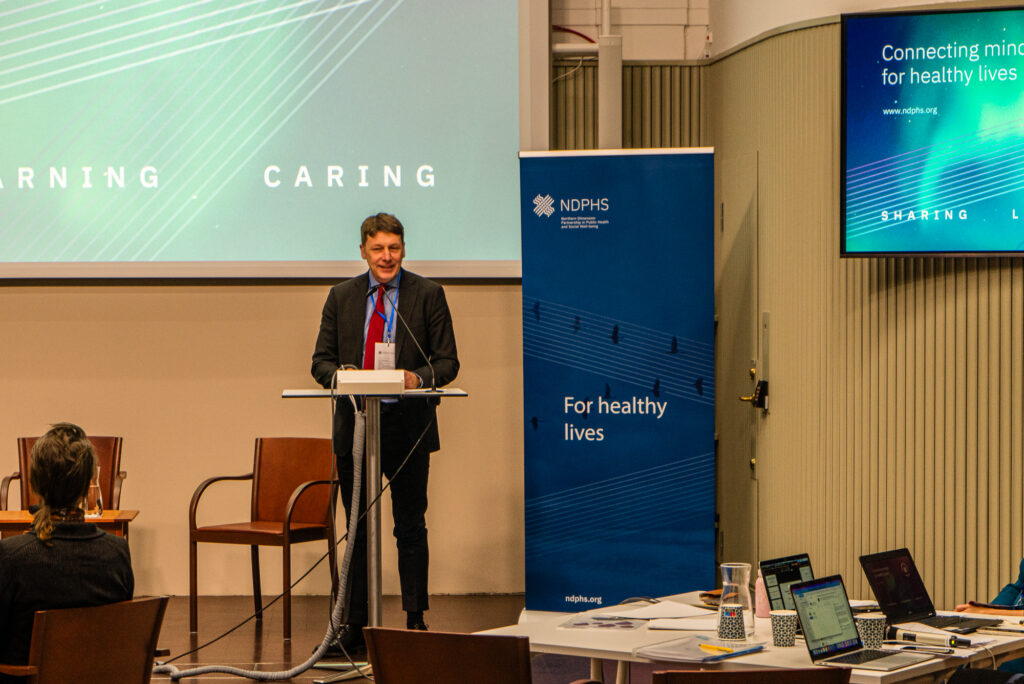The conference “Connecting science and well-being: Addressing antibiotic resistance through prevention and health promotion”
The conference Connecting Science and Well-being: Addressing antibiotic resistance through prevention and health promotion kicked off with a keynote presentation “When infections are no longer treatable” by Mrs. Birgitta Lytsy from Region Stockholm. During her intervention, Mrs. Lytsy highlighted that infection prevention and control are by far the most cost-effective measures to combat AMR. Antibiotics are still the cornerstone in medicine, a wonder drug, and a fundament of modern medicine. If bacterial infections are not possible to treat, intensive care patients will die from the infection.

The first session of the event focused on the microbiota and the impact of antibiotics. Dr. Jonas Fuks, Moderator of the event, and Dr. Sonja Löfmark Behrendtz, Chair of the NDPHS Expert Group on AMR, opened the session with a conversation on how antibiotics impact the gut bacterial flora. Continuing the discussion on the role of the microbiota in healthy ageing, Prof. Reet Mändar from the University of Tartu drew examples from the study that compared the gut microbiota and the behavioral habits of centenarians and young people to understand the effects of childhood environment and diet on the microbiota in people with longevity and good cognitive functions. The session was concluded by Prof. Tiina Laatikainen from the University of Eastern Finland who brought us back to nature, demonstrating that biodiversity and contact with diverse nature enriches our microbiome, balances the immune system, and protects health, while decreased interaction between individuals and natural environment could have an adverse effect on human microbiota and immune system.
In the second session, the focus turned to the healthcare sector. Dr. Tiina Likki from the WHO Regional Office for Europe connected action with human behaviours, showing how evidence-based and person-centered approaches can be used to improve health policies, services, and communications. Looking at the behaviours in the healthcare setting, Dr. Marje Oona from the University of Tartu and Dr. Kaily Susi from the Estonian Ministry of Social Affairs discussed how to promote the appropriate use of antibiotics in primary healthcare.

The final session discussed the global and regional initiatives. The session started with an introduction to the Swedish and global efforts to tackle AMR, given by the moderator of the session, Dr. Malin Grape, the Swedish AMR Ambassador. This was followed by presentations on the new Roadmap for the WHO European Region by Dr. Danilo Lo Fo Wong and on awareness raising about AMR in the EU/EEA by Ms. Andrea Nilsson from the European Centre for Disease Prevention and Control. The floor was then given to the NDPHS Expert Group on AMR to reflect on the main barriers and enablers for action on AMR in our region, and how the NDPHS as a regional network can address these barriers.
The NDPHS Secretariat expresses our warmest gratitude to all the speakers and guests who joined us on January 16 in Stockholm for their invaluable contribution, knowledge, and commitment to continue working on this important topic.

The event was organized by the NDPHS Expert Group on Antimicrobial Resistance in collaboration with the NDPHS Secretariat and the Swedish Chair.